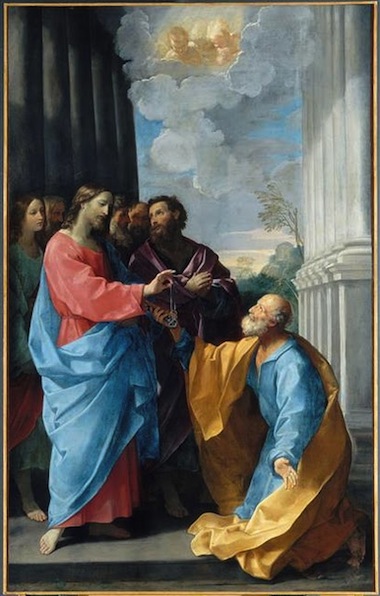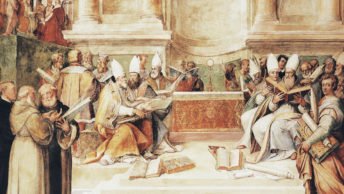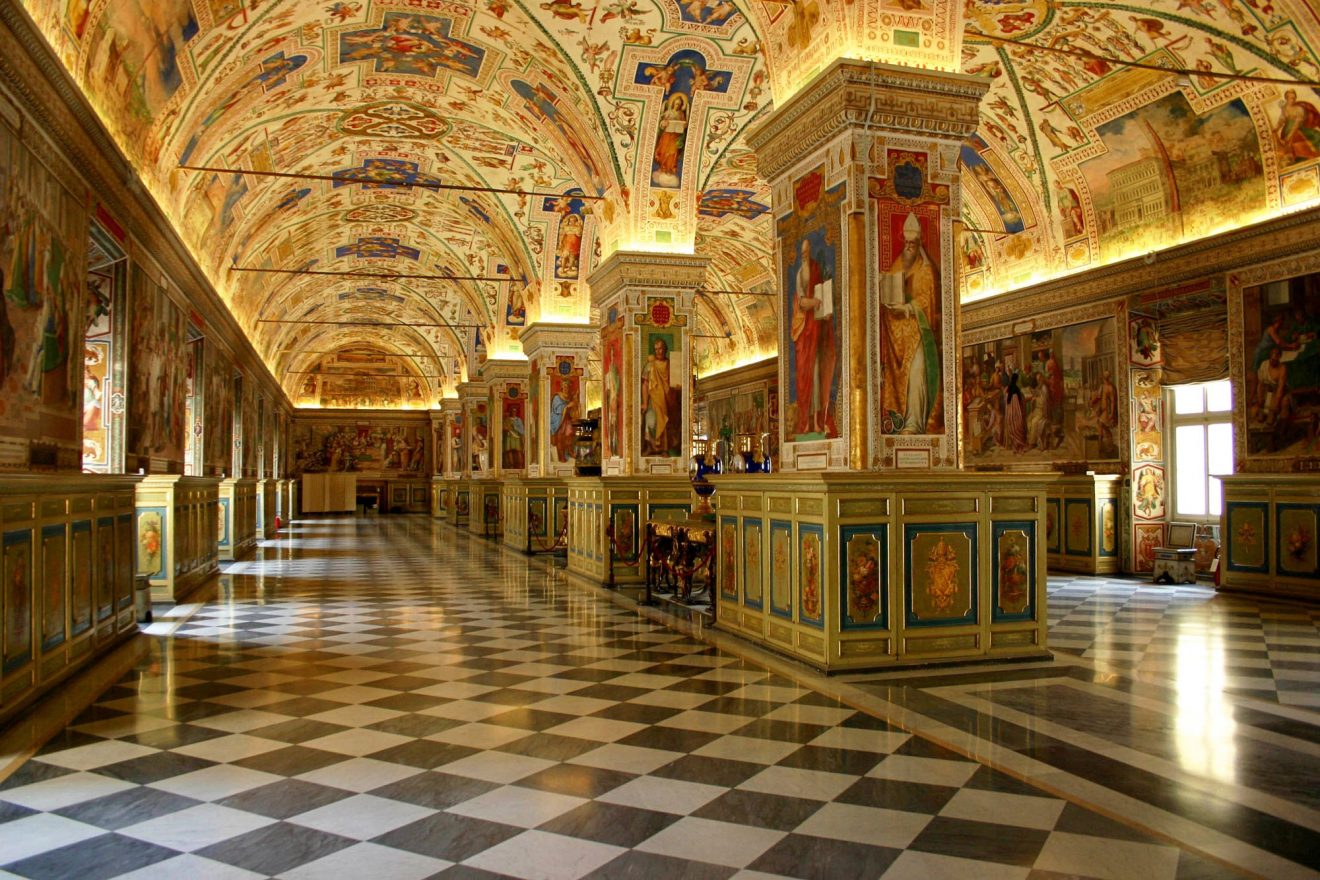
I want to begin today with some challenging questions in the hope that some clarity might change some of our present day thinking about religion. Are you here at this Mass because this is something you do on Sunday, or are you here because this is something we do as a family of Catholics on Sunday? Is this your Church, or is this our Church? Stated differently, does the Church belong to you, or do you belong to the Church? Are the prayers we pray here during Mass your prayers, or are they our prayers? When you pray the Lord’s Prayer, are you really praying “My Father who art in heaven,” or are you praying “Our Father who are in heaven?” Is religion all about me, or is it all about us?
The answers to these questions are not either/or answers; they are answers that include each of us. Our religious lives are both individual and communal at the same time.
In our contemporary culture the media exalts the virtues of being self-sufficient and self-assertive. But we must remember that there are other virtues, also. Being self-sufficient is, at times, good. But self-sufficiency should be seen in a larger context. It is but one virtue surrounded by and inter-connected with other virtues. Self-realization is a good thing, but taken to the extreme it leads to a bogus way of living. After all, it is impossible for me to make myself real all by myself. Who I am is in significant measure shaped by others.
In the areas of politics and law a great emphasis is placed these days on individual rights. At times this is necessary, right, and just. But we must always remember that in asserting my own individualistic and self-centered rights I can trample upon and destroy rights belonging to others. In asserting my own entitlements I can take away from my surrounding community’s common good. Does the community in which I live exist for me, or do I have obligations toward those others with whom, and among whom, I live? Serving the common good of others seems to me to be a value that does not have the strength these days that it used to have in former times.
The world leads us to believe that everything we need is within our own power to grasp and achieve. Happiness, we are told, lies within us. “In America you can be anything you want to be if only you work for it.” Bookstore shelves buckle under the weight of self-help works. Subtly they replace God-help books. The truth is that God has sent His Son to save us. God did not send us His Son simply to show us how we can save ourselves.
Our religion and our faith are not solitary and confined to our selves alone. My faith and yours as well are shaped and formed by the faith of others. My faith comes to me through a community of faith. Likewise, in that community, my faith contributes to the faith of others and becomes a part of the faith of others. Catholicism is a problem for many because it calls us to a faith that is both communal and individual. Our faith community shapes and forms the individual and the individual contributes to the form and shape of our communal family of faith. We do not make our family of faith – God makes it and gives it to us in His Christ. The Church is not simply another human institution. It comes to us from God.
“Our” is used when speaking of the family of faith we call the Catholic Church. Catholics speak of “our Church” more often than they speak of “my Church.” And even though Christians are divided by denominational boundaries, we all pray to our Father, for there is but one faith, one Lord, one baptism, and one God and Father of us all. Praying to “our Father” denotes belonging; it denotes family. We customarily speak of our personal family, just as we speak of our parish as “our family of faith.”
When you make a commitment to belong to a parish you are committing yourself to tolerate or at least “put up with” others in that community who are different from you, who belong to another political party, or who are of a different race or ethnic origin. You may not agree much with the person who sits next to you, but you still share the Greeting of Peace just before you share your Holy Communion with all the others of us who make up the Body of Christ. Do all in our parish have to be just like you in your thinking, in your view of the government’s social policies, your local school board’s politics, and so forth? Jesus did not live with and associate with only “nice” people, or just the spiritually elite. Are we entitled to live with better people than Jesus did? To love God we must love our neighbors – and worship with them. The disdainers of organized religion not only refuse to love their neighbors, they won’t even put up with them in church.
To love God and to love our neighbor can never be separated from each other. To love God and not want to live in communion with others – not even want to be with them in church, is to live in spiritual isolation. To live in isolation is to live a privatized, delusional life. To live apart from the Church is to live in a delusional, self-centered, and elitist spirituality.
The scandal of the Church is that it is so filled with all that is human. To reject the Church is to reject what is so very human, to cast it off instead of loving it enough to redeem it, which is the way and the life of Christ Jesus.
I turn now to today’s Gospel account (Mk 6:7-13) in which it is reported that Jesus sent The Twelve out into the world, two by two, so that they might evangelize all whom they would encounter. The point is that Jesus did not send them out individually. Previously He had selected twelve individuals to be His apostles. From then on He lived with them, taught them, and formed them as a collectivity, as a group. He did not tutor them individually.
We see this foundational principle in the four Gospels and throughout the entire New Testament. The Christian religion is not a “me and Jesus” religion, it is a “we and Jesus” religion. The Catholic Church is not simply a voluntary association of like-minded individuals who have banded together to form a social institution or legal entity. The Church is not a man-made institution. Rather it is something given to us by God in Christ in which we live, move, and have our being. The Catholic Church is ours, not mine. It is a family, not a club in which I decide to take our membership.
I do not wish to gloss over and ignore all that is wrong in our Church, all that has diminished us, the unholy things that have diverted attention away from all that is holy and wholesome in our family of faith. Nevertheless we need to see that in this world there are builders and there are bashers, those who build up and those who tear down. It’s easy to be a basher. It takes faith, love, hope, and devotion to be a builder, along with strength and courage.
What, then, is your motive for being here today? I would suggest that deep down you are here to build us up. I hope that’s important to you. You are Christ’s hands, feet, mouth, and arms. Your own personal faith, love, hope, and devotions builds me up as it builds up and supports everyone else who is here today.
God bless you! The Church needs you! We need you! Christ needs you! And He now gives you the food and strength within it that you need – the Bread of Life to nourish and sustain you now and always here in the Mystical Body of Christ, that reality in which we, all together, share in the life of God.







